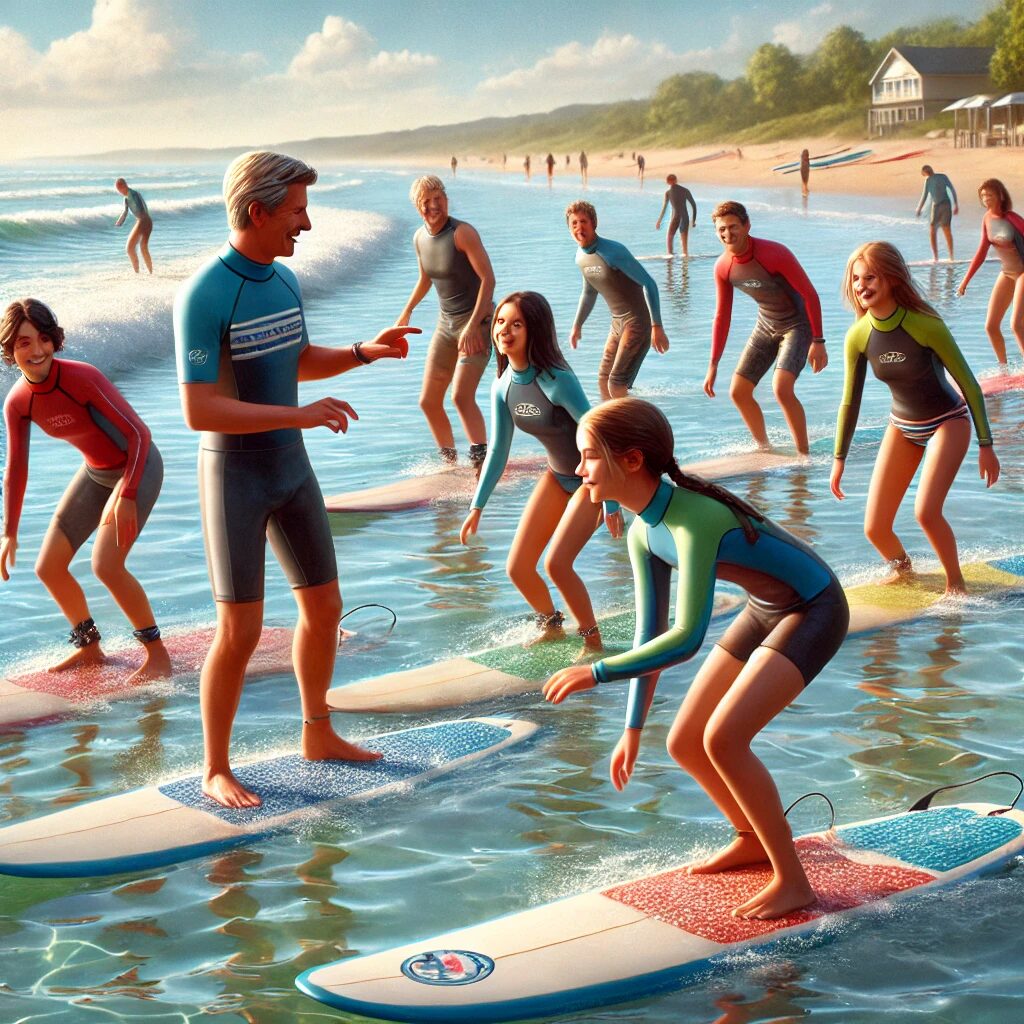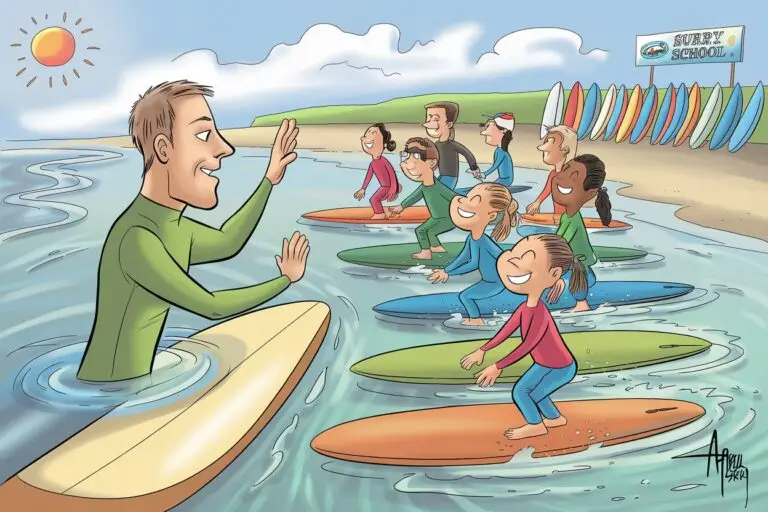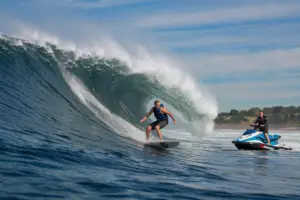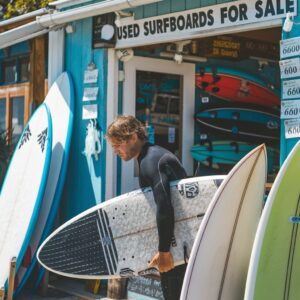Ever stood on the shore, gazing out at the rolling waves, and wondered if surf lessons are really worth your time and money? The allure of catching your first wave and the thrill of mastering the ocean’s rhythms can be compelling, but is it worth diving into surf lessons? Whether you’re a complete novice or someone who’s dabbled in the sport before, understanding the value of professional instruction can make all the difference in your surfing journey. In this article, we’ll explore eleven compelling reasons why surf lessons might just be the investment you need to elevate your experience and enjoyment on the water. Let’s dive in and see if surf lessons are the key to unlocking your surfing potential!
Why Surf Lessons Are a Smart Investment
So, you’re pondering whether surf lessons are worth the plunge? Let’s break down why enrolling in a surf school can be a game-changer for your beachside adventures. Surfing isn’t just about paddling out and hoping for the best—it’s an intricate dance with nature, and having a guide can make all the difference. Here are eleven compelling reasons why surf lessons are an investment you won’t regret:
- Expert Guidance: Imagine having a seasoned surf pro as your personal mentor. Professional instructors bring a treasure trove of knowledge about wave patterns, tides, and techniques that can fast-track your learning curve. Their keen eyes can pinpoint your form, helping you correct mistakes before they become habits.
- Safety First: Surfing can be exhilarating, but it also comes with its risks. From navigating strong currents to understanding rip tides, a surf instructor ensures you’re equipped with the safety protocols needed to handle the ocean’s challenges. It’s like having a safety net while you’re learning to balance on your board.
- Accelerated Learning: While some might think they can pick up surfing on their own, professional lessons expedite the process. Instructors tailor sessions to your skill level, helping you progress more quickly than you might on your own. This means fewer wipeouts and more time catching waves.
- Customized Techniques: Every surfer has their unique style and learning curve. Surf lessons provide personalized feedback, allowing you to develop techniques that suit your strengths and address areas for improvement. It’s like having a bespoke surfing experience.
- Equipment Know-How: From choosing the right board to understanding wetsuits, surf schools provide insights into the gear that best fits your needs. This knowledge ensures you’re not just riding the waves but doing so with equipment that enhances your performance and comfort.
- Wave Etiquette: Surfing isn’t just about catching waves—it’s also about respecting fellow surfers and understanding the unwritten rules of the lineup. A surf instructor teaches you the ropes of surf etiquette, ensuring you’re both a competent and considerate surfer.
- Building Confidence: The ocean can be intimidating, especially for beginners. Surf lessons build your confidence by gradually introducing you to different aspects of surfing, from paddling techniques to standing up on the board. It’s about transforming anxiety into exhilaration.
- Physical Fitness: Instructors often incorporate exercises and drills that enhance your physical conditioning, making your time in the water more enjoyable and less strenuous.
- Social Connections: Joining a surf school often means meeting fellow enthusiasts who share your passion. The camaraderie and support of a surf community can make the learning process more enjoyable and motivate you to keep improving.
- Scenic Locations: Surf schools are often located in some of the most beautiful coastal spots. Not only do you get to learn a new skill, but you also get to enjoy breathtaking ocean views and beach environments that add to the overall experience.
- Long-Term Benefits: The skills and knowledge you gain from surf lessons aren’t just for the short term. They lay the foundation for lifelong surfing, allowing you to refine your techniques and explore more advanced maneuvers as you continue to ride the waves.

Finding Your Perfect Surf Lesson: Where to Buy and What to Consider
When it comes to surf lessons, the options are as diverse as the waves themselves. Choosing the right surf school or instructor can significantly impact your experience, so it’s crucial to evaluate your choices carefully. Let’s dive into how you can find the best surf lessons and what to look for when making your decision.
Where to Buy Surf Lessons
- Local Surf Schools: Many coastal areas have local surf schools offering group and private lessons. These schools often provide a range of packages, from single sessions to multi-day courses. They are typically run by experienced surfers who know the local conditions and can tailor lessons to your skill level.
- Online Booking Platforms: Platforms like Viator, GetYourGuide, and Airbnb Experiences allow you to compare different surf schools, read reviews, and book lessons in advance. These platforms provide a convenient way to find and secure lessons, especially if you’re planning a trip.
- Hotel or Resort Packages: Some beachfront hotels and resorts offer surf lessons as part of their amenities. Booking through your accommodation can be convenient, as it often includes extras like transportation to the surf spots or discounts on multiple sessions.
- Community Centers and Recreation Programs: In some areas, local community centers or recreational programs offer surf lessons. These are often more affordable and can be a great way to get started if you’re looking for budget-friendly options.
Comparing Surf Lesson Options
To help you make an informed decision, here’s a comparison table highlighting different factors to consider when choosing surf lessons:
| Factor | Local Surf Schools | Online Booking Platforms | Hotel/Resort Packages | Community Centers/Recreation Programs |
| Instructor Expertise | Highly experienced, local surf pros | Varies; read reviews for insights | Often experienced, but may vary | Usually less experienced, may vary |
| Flexibility | Often flexible with scheduling | High flexibility with booking times | Limited to hotel’s schedule | Limited, based on community program |
| Price | Can vary widely, often more expensive | Competitive pricing, often with discounts | Often included in accommodation fees | Generally more affordable |
| Group Size | Options for private or group lessons | Options available, group sizes vary | Usually group lessons, but private may be available | Typically group lessons |
| Location | Local beaches with tailored conditions | Varies by provider, can be anywhere | Directly at or near the hotel’s location | Local beaches or designated areas |
| Equipment Included | Usually included in the lesson price | Check for details on included gear | Often included as part of the package | May require you to bring your own gear |
| Reviews & Ratings | Can be found online or through word of mouth | Reviews available on booking sites | Check with hotel for guest feedback | Less likely to have online reviews |
What to Look For
When selecting your surf lessons, consider the following factors:
- Instructor Qualifications: Ensure the instructors are certified and have experience teaching students at your skill level. Look for reviews or testimonials from past students.
- Lesson Structure: Understand what the lesson includes—will you have a one-on-one session or be part of a group? What’s the ratio of students to instructors?
- Location and Facilities: Check the surf school’s facilities, such as changing rooms, equipment storage, and safety measures. Proximity to good surf spots is also essential.
- Cost vs. Value: While price is important, focus on the value you’re getting. A slightly higher price might be justified by better equipment, a more experienced instructor, or additional benefits.
- Cancellation Policy: Be aware of the surf school’s cancellation policy.
The Pros and Cons of Surf Lessons: What You Need to Know
Surfing can be an exhilarating experience, but like any activity, it comes with its own set of advantages and challenges. Here’s a comprehensive look at the pros and cons of taking surf lessons:
| Pros | Cons |
| 1. Professional Instruction | 1. Cost |
| Gain insights from experienced instructors who can provide personalized feedback and accelerate learning. | Surf lessons can be expensive, especially with private sessions or multi-day packages. |
| 2. Enhanced Safety | 2. Time Commitment |
| Learn essential safety protocols to handle ocean conditions and minimize risks. | Lessons require a time commitment, which may not fit everyone’s schedule. |
| 3. Faster Learning Curve | 3. Variable Quality |
| Professional guidance can help you progress faster compared to self-teaching. | The efficacy of surf instruction can fluctuate significantly depending on the qualifications and teaching methods of the instructor or the overall standards of the surf school. |
| 4. Tailored Techniques | 4. Weather Dependency |
| Receive personalized instruction that adapts to your skill level and learning style. | Lessons can be affected by weather conditions, leading to cancellations or rescheduling. |
| 5. Equipment Provided | 5. Group Dynamics |
| Surf schools often include equipment like boards and wetsuits, saving you from additional costs. | Group lessons might limit personal attention and vary in skill levels. |
| 6. Understanding Surf Etiquette | 6. Physical Demands |
| Learn the unwritten rules of the surf lineup and how to interact with other surfers. | Surfing is a physically strenuous activity that necessitates a requisite level of physical conditioning and endurance. |
| 7. Boosted Confidence | 7. Limited Flexibility |
| Gain confidence in your surfing abilities through guided practice and support. | Pre-set lesson times may not be flexible enough for all schedules. |
| 8. Social Interaction | 8. Equipment Restrictions |
| Meet fellow surf enthusiasts and join a community with shared interests. | Some lessons may not include the best equipment for your personal preferences. |
| 9. Scenic Locations | 9. Initial Difficulty |
| Enjoy surfing in beautiful coastal locations that enhance the overall experience. | Beginners may find it challenging and frustrating at first, impacting motivation. |
| 10. Structured Learning | 10. Skill Plateau |
| Follow a structured curriculum that ensures comprehensive learning and skill development. | After initial progress, you may hit a skill plateau that requires additional lessons or practice. |
| 11. Motivation and Accountability | 11. Lesson Duration |
| Having scheduled lessons can keep you motivated and accountable for your progress. | Each lesson’s duration may vary, and shorter lessons might not be sufficient for in-depth learning. |
| 12. Exploration of Surf Culture | 12. Travel Costs |
| Immerse yourself in surf culture, learning about the sport’s history and traditions. | If traveling to a surf school, additional costs for transportation and accommodation may apply. |
Frequently Asked Questions About Surf Lessons
If you’re considering surf lessons but still have some questions, you’re not alone. Here’s a rundown of common queries about surf lessons to help you make an informed decision.
What should I bring to a surf lesson?
For your first surf lesson, bring swimwear, a towel, and sunscreen. Many surf schools provide wetsuits and surfboards, but it’s a good idea to confirm this when you book. If you have your own equipment, you can bring it along, but be sure to check with the instructor to ensure it’s appropriate for the lesson.
How long does a typical surf lesson last?
Surf lessons usually last between 1.5 to 2 hours. This timeframe typically includes a warm-up, safety briefing, practical instruction, and practice time. The duration might vary depending on the surf school and the type of lesson you’ve booked.
Are surf lessons suitable for beginners?
Absolutely! Instructors tailor the lessons to your experience level, starting with basic techniques and gradually advancing as you improve. Surf schools are well-equipped to handle newcomers and ensure you get a solid foundation.
How many people are usually in a group lesson?
Group sizes can vary, but most surf schools aim for a ratio of 4 to 6 students per instructor. This allows for personalized attention while still being economical. For more one-on-one guidance, private lessons are available, although they tend to be more expensive.
What happens if the weather is bad?
Surf schools typically have policies in place for inclement weather. If conditions are unsafe or unsuitable for surfing, the school will often reschedule your lesson or provide a refund. It’s a good idea to check the surf school’s cancellation policy and weather-related guidelines before booking.
Do I need to be a strong swimmer to take surf lessons?
While you don’t need to be an expert swimmer, a basic level of swimming ability is important. Surf lessons involve being in the water and navigating through waves, so comfort in swimming and water safety is crucial. If you’re unsure about your swimming skills, discuss this with the surf school before booking.
Can I take surf lessons if I have a medical condition?
Inform the surf school of any relevant health issues so they can ensure appropriate accommodations and safety measures are in place. Surfing can be physically demanding, so it’s important to consider how your condition might affect your experience.
How much do surf lessons cost?
The cost of surf lessons varies depending on the location, duration, and whether you choose a group or private session. On average, group lessons range from $60 to $150 per person, while private lessons can cost between $100 and $300. Some surf schools offer package deals or discounts for multiple lessons.
Can I book surf lessons online?
Yes, many surf schools offer online booking through their websites or platforms like Viator and Airbnb Experiences. Online booking allows you to compare different surf schools, read reviews, and secure your spot in advance. It’s a convenient option for planning your surf adventure.
How do I choose the right surf school?
When selecting a surf school, consider factors such as instructor qualifications, equipment provided, safety protocols, and customer reviews. Look for schools with experienced instructors, positive feedback from past students, and a focus on personalized instruction. Checking for certifications and safety measures can also help ensure a quality experience.
What is surf etiquette, and why is it important?
Surf etiquette involves respecting other surfers and understanding the rules of the surf lineup. Key aspects include waiting your turn, avoiding dropping in on someone else’s wave, and being aware of your surroundings. Good surf etiquette promotes safety and harmony in the water, making it more enjoyable for everyone.
Can I progress quickly with surf lessons?
Surf lessons can significantly accelerate your learning process, especially with professional guidance. While individual progress varies, instructors help you build foundational skills and provide tips to improve. Consistent practice and additional lessons can help you advance more rapidly and build confidence in your surfing abilities.
Wrapping Up: Are Surf Lessons Worth It?
So, are surf lessons worth the investment? If you’re eager to develop a solid foundation in surfing, enhance your skills with expert guidance, and enjoy the numerous benefits of professional instruction, then surf lessons can be a fantastic choice.
From accelerated learning and improved safety to personalized feedback and boosted confidence, the advantages of taking surf lessons are compelling. They not only equip you with the technical skills needed to navigate the waves but also immerse you in the culture and etiquette of the sport, making your surfing experience richer and more enjoyable.
However, it’s important to weigh these benefits against factors such as cost, time commitment, and the potential for variable quality. In essence, if you’re ready to embrace the thrill of surfing and are willing to invest in your growth as a surfer, lessons are likely to be a worthwhile and rewarding endeavor. So grab your board, hit the waves, and let the adventure begin!
If you want more info about surf lessons, you may be interestsed to read this:
Average Cost of Surfing Lessons




